Research has been at the heart of ESTECO since its foundation. Our long-term relationships with universities, scientific institutions and research partners worldwide help us maintain an ongoing exchange of information and ideas.
This interchange is key to keep our technology at the forefront of innovation; it allows our staff to nurture scientific and technical insights, be up-to-date with the latest trends and spread this knowledge within the company.
How we foster innovation and research

Joining forces with qualified partners
As a company stemmed from a EU-funded project, research is deeply embedded in our genes. Taking part in European, Regional and Interregional projects has always been a priority to us. This ensures a constant source of knowledge and scientific insight for our research and development teams.

Expanding our technology scope
The exploration of new technology trends and disciplines, led us to expand our scope and offer, with new cloud-based solutions ranging from business process management, to mobile and IoT. Find out how our lateral thinking approach helps us push innovation boundaries.

Collaborating with universities worldwide
A solid academic network is one of the ESTECO’s strong points. Our qualified staff offers courses and lectures in the scientific and academic environment. Thanks to our academic offer, over 200 universities all over the world use our technology to foster new learning opportunities in STEM education.
modeFRONTIER helped us select feasible design alternatives by performing sensitivity and multi-variate analysis.
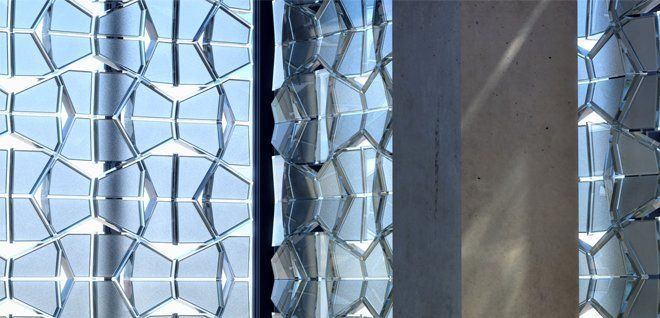
Research projects
Duration: 24 months
AIRYS - AI-based prototyping of a stealth drone is a pioneering project supported by the European Defence Agency (EDA). AIRYS aims to bring advanced artificial intelligence into the world of next-generation defence technology. The goal of the project is to fast-track the development of smart, stealth-capable drones using cutting-edge AI and rapid prototyping techniques.
ESTECO is part of a strong European consortium to pursue this initiative together with Nurjana Technologies, Luxembourg Institute of Science and Technology (LIST), Rafinex, and Gradel S.à r.l.
ESTECO will provide expertise and technology to speed up the design and production phase.
Duration: 12 months
Funded by: National Centre for HPC, Big Data, and Quantum Computing Spoke 6 (European Union NextGenerationEU)
NOZZLE-TEC (Spray Nozzle Technical Characterization) is a project funded by the cascade call of the “National Centre for HPC, Big Data, and Quantum Computing” Spoke 6, involving ESTECO, CIRA, and Mare Group. The project aims to acquire new knowledge in the field of meshless methods for numerical simulations of liquid-gas two-phase flows, using the spray-bar nozzle of CIRA’s Icing Wind Tunnel (IWT) as a case study. This new knowledge will serve as a foundation for the future digitalization of the entire IWT facility, enhancing its predictive capabilities while reducing operating, management, and maintenance costs, thereby making it more eco-sustainable.
Eligible costs: 155.011,85€
Supported with 155.011,85€



Duration: 42 months
Funded by: PR FESR 2021-2027 - Regione Friuli Venezia Giulia
Silentship aims to improve the comfort in the cabins and the ships' vibro-acoustic footprint with the use of acoustic black holes. Thanks to the particular geometry, these devices are able to dissipate the vibrational energy triggered by the main machinery and transmitted to the ship’s structures. The project will establish optimization methodologies to then create innovative, lightweight and sustainable devices to be tested on board.
ESTECO will address the geometric and spatial optimization of ABH, which will be optimized to trap and dissipate the sheets' energy flows vibration, increasing comfort in the cabins. The software used for the design and simulation of ABH (Grasshopper, Patran and Nastran) will be integrated into modeFRONTIER, in order to automate the simulations required by the optimization process to obtain the optimized solutions - first in relevant environment (ships mock-up in laboratory) and finally in an operational environment (consistent with the structure of the passenger ships).
Eligible costs: 249.238,75€
Supported with 119.104,25€ (EU contribution: 40%)
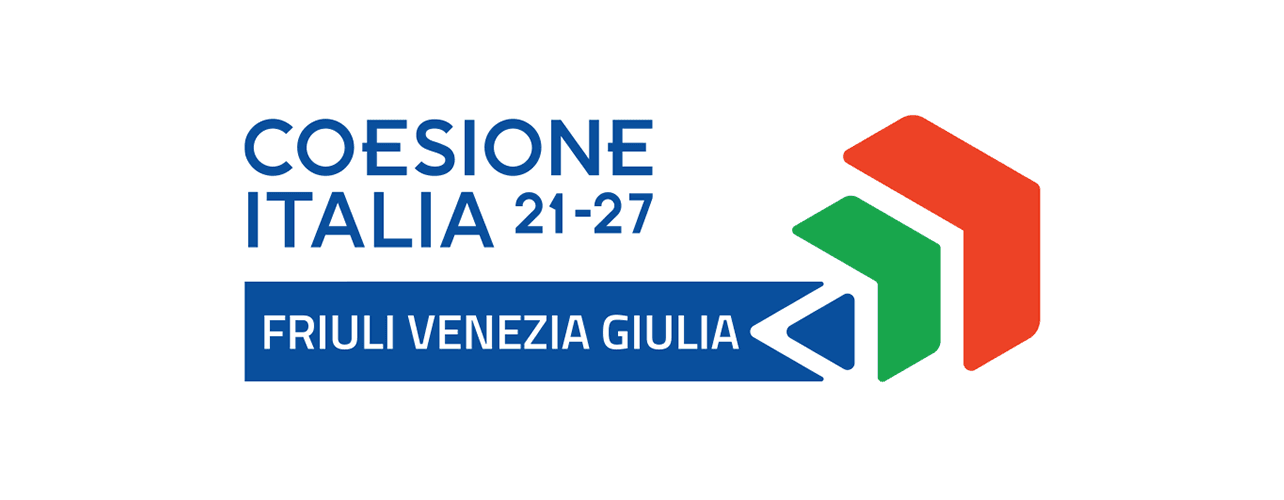
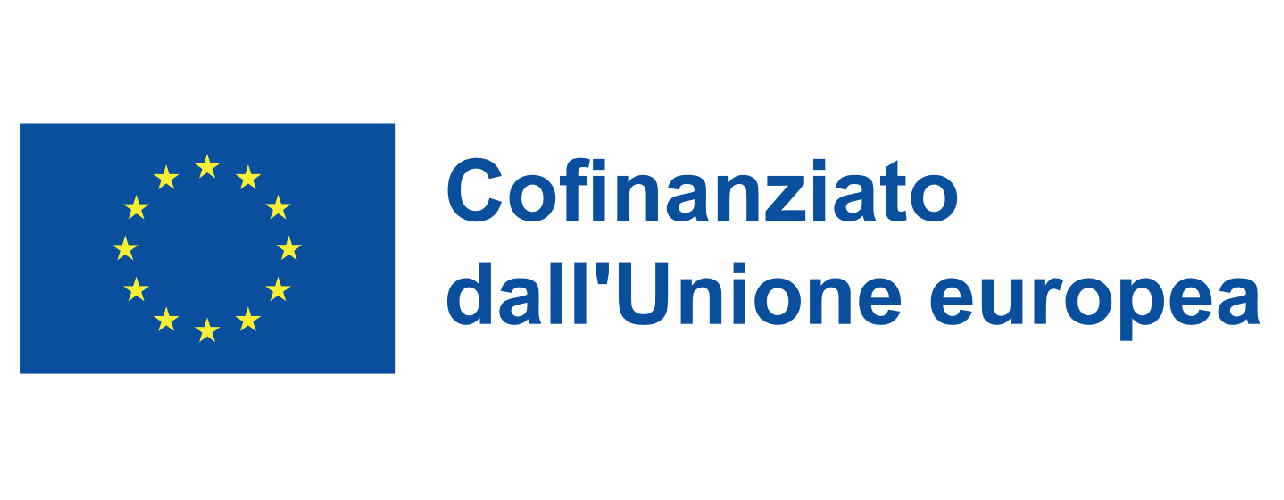

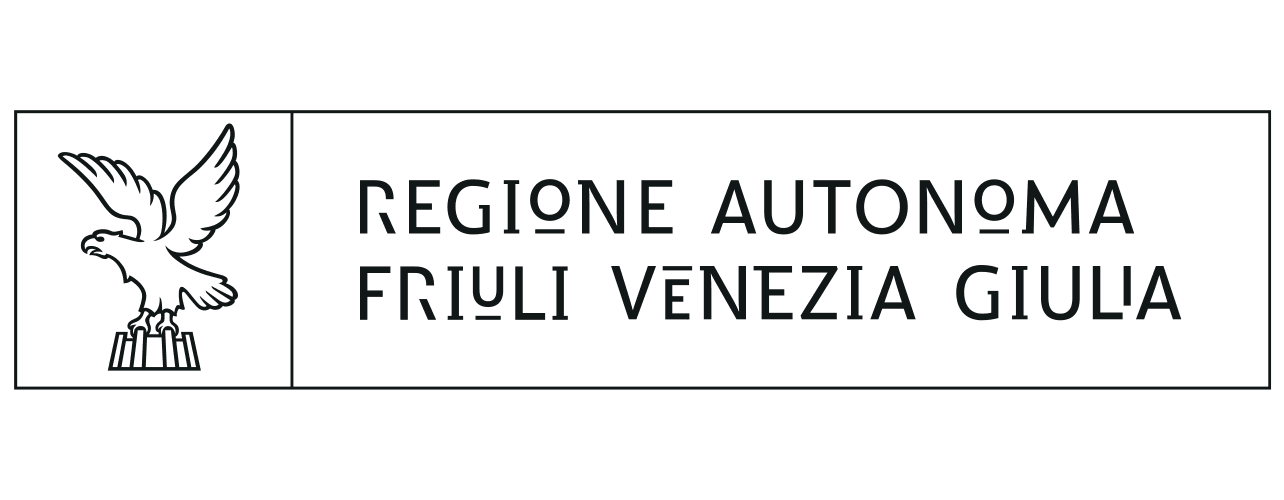
Duration: 12 months
Funded by: PR FESR 2021-2027 - Regione Friuli Venezia Giulia
SYNOPSIS VITAE is a research and development project funded by Regione Friuli Venezia Giulia under the PR FESR 2021-2027 program.
The project is part of the “S4 – Sustainable Smart Specialization Strategy” area for “Cultural, heritage, design, creative industry, tourism”, and aims to consolidate and implement the innovative potential of the indoor localization system developed by ESTECO in the PR FESR 2021-2027 VITAE project.
ESTECO intends to achieve this objective by working on the re-engineering of the proprietary indoor localization system, developed and validated in small museum environments, and by extending the cloud infrastructure for managing the collected data and the system itself. Specifically, research activities will be conducted to make the existing system capable of operating in various types of spaces, managing a larger number of users, and providing museum managers with tools for targeted analysis specific to each context.
Eligible costs: 166.656,00€
Supported with 99.993,60€ (EU contribution: 40%)




Duration: 18 months
Funded by: PR FESR 2021-2027 - Regione Friuli Venezia Giulia
VITAE (Virtual and physical Indoor Tracking enabled Augmented Experience) is a joint research and development project funded by Regione Friuli Venezia Giulia under the PR FESR 2021-2027 program. The project is part of the “S4 – Sustainable Smart Specialization Strategy” area for “Cultural, heritage, design, creative industry, tourism”, in the framework of the second development trajectory dedicated to “research, development and technological innovation for cultural and creative enterprises”.
The project aims at improving museum visit experiences by combining indoor localization technologies, software solutions for augmented reality, and tools for the analysis and simulation of visitor flows. ESTECO, together with IKON and LIFT, will achieve this goal via a proof of concept platform for the definition, management and simulation of digitized museum experiences.
In particular, ESTECO will develop the platform UWB-based localization system that will provide the precise, real-time position and orientation of visitors. Such data will be used to provide augmented visit experiences to visitors, and advanced organization and planning capabilities to museum managers.
Eligible costs: 375.500,85€
Supported with 164.249,62€




Duration: 2021-2024
Funded by: POR FESR 2014-2020 - Regione Friuli Venezia Giulia
RUNBOX is a research project funded by Regione Friuli Venezia Giulia under the POR FESR 2014-2020 call. The project is part of the “S3 – Smart Specialization Strategy” area (metalworking sector), in the framework of the development path dedicated to Solutions and technologies for an integrated planning and innovative products/intelligent machines. ESTECO is going to implement a web architecture for the creation/generation and automation (RUN) of applications (BOX) dedicated to industrial design and simulation. This architecture is going to make available to simulation experts of the engineering field the possibility to plan and create simplified web interfaces, the so-called RUNBOX. These interfaces can be shared with partners/colleagues, suppliers and anyone included in the design process, always focusing on the security of the data that are used. The low-code approach, or even better zero-code, of the RUNBOX is going to facilitate the democratization of the simulation process within companies, as a key factor for more efficient product engineering processes.
Supported with 59.887,90€


Duration: 30 months
Funded by: Regione Friuli Venezia Giulia - PR FESR 2021-2027 program
PORTRAIT (Port to Rail Digital Twin in the Adriatic Region) is a joint research and development project funded by Regione Friuli Venezia Giulia under the PR FESR 2021-2027 program. The project is part of the “S4 – Sustainable Smart Specialization Strategy” area for “Maritime Technologies - Sustainable Waterborne Mobility and its land connections”, in the framework of the second development trajectory dedicated to “Smart Mobility: technologies, systems, and intelligent solutions for ships, shipyards, ports, and their land connections”. ESTECO, together with Adriafer, IKON, LIFT and the University of Trieste, will create a highly interactive and detailed digital representation of the port system, consisting of the Ports of Trieste and Monfalcone and the inland terminals of Fernetti, Cervignano, and Gorizia. This digital representation will assist port community operators in making informed decisions, improving operational efficiency, reducing costs, and managing network disruptions. It will be crucial in optimizing the last mile of rail operations, promoting greater integration between the rail network and port activities.
Eligible costs: 311.670,00€
Supported with 136.904,63€ (EU contribution: 40%)




Duration: 2023 - 2027
Funded by: COST (European Cooperation in Science and Technology) Association
The ROAR-NET COST Action is an interdisciplinary research network that brings researchers and innovators together to reduce the gap between black-box and white-box models and promote a wider adoption of randomized optimization algorithms also in contexts, like Operations Research, where deterministic solvers are still the preferred choice. The path to these objectives is the identification and reduction of obstacles to the adoption of randomized optimization algorithms at all levels (scientific, technical, economic, and human). The needs of practitioners are the driving force for new theoretical, methodological, and technical advances leading to the sustainable development of widely available software tools, training materials and programs, and to a more extensive acceptance and deployment of these methods.
Duration: 10 months
Funded by: POR FESR 2014-2020 - Azione 4.2 - Attività 4.2.b - HIGHTECH AND BIOHIGHTECH
The project scope is to consolidate and develop current business activities, and to support investments to help the Organization cope with the new reality of the Covid-19 pandemic.
The purchase of new hardware and software equipment is of paramount importance to support development programs for the company and the entire production, in order to comply with legal restrictions on one hand and the penetration of the Agile work organization within the company on the other.
The project duration is 10 months. During this time, given the verticalization of smart working, the company is going to purchase new quality hardware and software to equip employees with appropriate tools that make remote work as efficient as in the office. “yFiles” is the company software of choice as best software library for visualization, modification and analysis of the diagrams. The Graph Visualization SDK is available for 5 main platforms and technologies: HTML, JavaFX, Java (Swing), WinForms and WPF.
Algorithms and precise configurations allow to add relevant information to the visualizations, helping users to find answers to their questions by simply looking at the diagrams. The additional investments within this project include not only the above-mentioned new equipment, but also the creation of new promotional campaigns, traditional and online ones, using the LinkedIn platform, and part of the annual rent paid to Area Science Park.
Supported with 33.900,00€


Duration: 2021-2024
Funded by: H2020 call DT-NMBP-11-2020
MUSICODE (An experimentally-validated multi-scale materials, process and device modeling & design platform enabling non-expert access to open innovation in the organic and large area electronics industry) is a European collaborative research and innovation project led by a multi-disciplinary consortium coordinated by University Ioannina.
Our software will be used to base developments for the MUSICODE software platform. Specifically, we'll provide our expertise in software development by contributing to the use of well-consolidated software development practices based on agile methodologies and test-driven development in a continuous integration and continuous deployment cycle.

Duration: December 2019-November 2023
Funded by: H2020-MSCA-RISE-2019 of the European Commission
ARIA is a program bringing together 15 partners (among them ESTECO) for basic research into fluid mechanics. The overarching objective of ARIA project is to form an international and intersectoral network of organizations working on a joint research program in numerical modeling, specifically in the fields of model reduction and convergence between data and models. The goal of this EU program is to reduce the amount of time taken to develop models, which will enable researchers and engineers to make decisions more quickly. Participants to ARIA project will exchange skills and knowledge through secondments and thematic workshops, which will allow them to progress towards key advances in modeling multi-scale nonlinear physical phenomena. This project will strengthen collaborative research between different countries (France, Germany, Italy, Spain) and sectors fostering applications in industrial flow control and optimization, and computer assisted surgery.
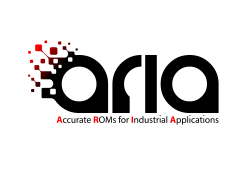
Duration: 2020
Funded by: European Union’s Horizon 2020 research and innovation programme under grant agreement No 101003551
XSCALATE4CoV (E4C) is a public-private consortium supported by the European Commission’s Horizon 2020 tender for projects to counter the Coronavirus pandemic and improve the management and care of patients. This project aims at developing a smart platform against pathogens. It’s the first computational platform dedicated to addressing the need to promptly respond to a pandemic crisis. ESTECO technology will be initially used to maximize the throughput of the “in-silico” screening of molecules on the new hardware being installed at CINECA but further applications are foreseen in subsequent phases.
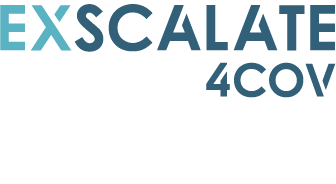
Duration: 18 months
Funded by: POR FESR 2014-2020 in collaboration with ESTECO, Tekno Data, IKON, MICAD e Monte Carlo Yachts
Cantiere 4.0 project is part of the S3 specialization area, related to the Metalworking sector, in the framework of the first development trajectory dedicated to "food specialization, supply chain strategic production, marine technologies and smart health". The project aims to transfer the technologies and processes of the fourth industrial revolution to the nautical sector. To achieve this, Tekno Data, IKON, MICAD, Monte Carlo Yatch and ESTECO will carry out research activities intended to support modern naval production, which will contribute to the planning, design, maintenance and support of the marine production equipment.
Eligible costs: 125.614,81 €
Supported with 62.807,41€

Duration: 21 months
Funded by: POR FESR 2014-2020 in collaboration with ESTECO and Ergolines
iCAST project is part of the S3 specialization area, related to the Metalworking sector, in the framework of the first development trajectory dedicated to "Numerical modeling technologies of processes and products". The project aims at elaborating a new technology for 'assisted solidification' of steel. To achieve this, Ergolines and ESTECO will carry out research activities in the field of numerical modeling, simulation and numerical optimization of key parameters of the process responsible for the quality of the steel and energy efficiency.
Eligible costs: 317.834,10 €
Supported with 153.264,99€

Duration: 2017 - 2021
Funded by: Bio Based Industries Joint Undertaking under the European Union's Horizon 2020
Key to securing Europe’s energy supply is diversifying supply routes. This includes identifying and building new routes that unlock resources and decrease Europe’s dependence on a single supplier of natural gas and other energy resources. The GASVESSEL project opens up new possibilities to exploit stranded, associated and flared gas where this is currently economically not viable and creates new cost-efficient gas transport solutions. This will be achieved with a novel offshore and onshore compressed natural gas (CNG) transportation system.

Duration: 1 January 2017 - 31 December 2020
Funded by: EU Horizon 2020
Project Coordinator: Luxembourg Institute of Science and Technology
The Cardanit platform, powered by ESTECO, will contribute to the mission of COMPOSELECTOR project. COMPOSELECTOR is an ambitious, innovative and timely project whose aim is to develop a Business Decision Support System (BDSS), which integrates materials modeling, business tools and databases into a single workflow.

Duration: 2013-2016
Funded by: European Commission under 7th Framework Programme for Aeronautic and Aerospace
Virtual prototyping (VP) is a key technology for environmental friendly and cost effective design in the aircraft industry. However, the underlying analysis and simulation tools (for loads, stresses, emissions, noise), are currently applied with a unique set of input data and model variables, although realistic operating conditions are a superposition of numerous uncertainties under which the industrial products operate (uncertainties on operational conditions, on geometries resulting from manufacturing tolerances, numerical error sources and uncertain physical model parameters). Major new developments in this new scientific area of Uncertainty Management and Quantification (UM and UQ) and Robust Design methods (RDM) are needed to bridge the gap from the current State of the Art to the level of industrial readiness where large numbers of simultaneous uncertainties can be treated in analysis and design.
This project has received funding from the European Union’s Seventh Framework Programme for research, technological development and demonstration under grant agreement ACP3-GA-2013-605036
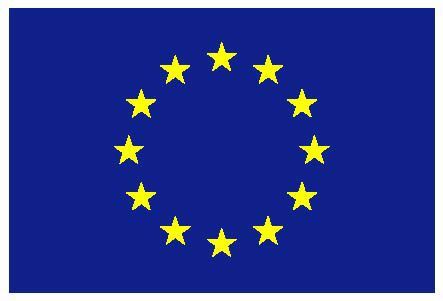
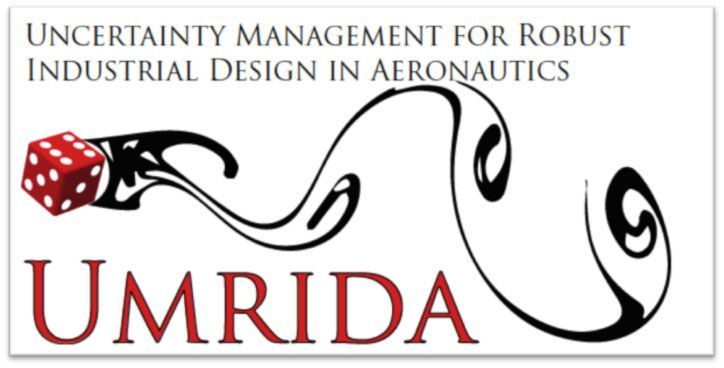
Duration: 2018-2022
Funded by: European Union’s Horizon 2020 research and innovation programme under MSCA ITN-EID grant agreement No 813948
COMETE aims at building a computational framework and a network of competence to extend the applicability of state-of-the-art formulations to industrially-relevant multiphase turbulent flows. COMETE leverages on the complementary expertise of the industrial and academic partners to ensure successful combination of technology-driven objectives and original research developments.
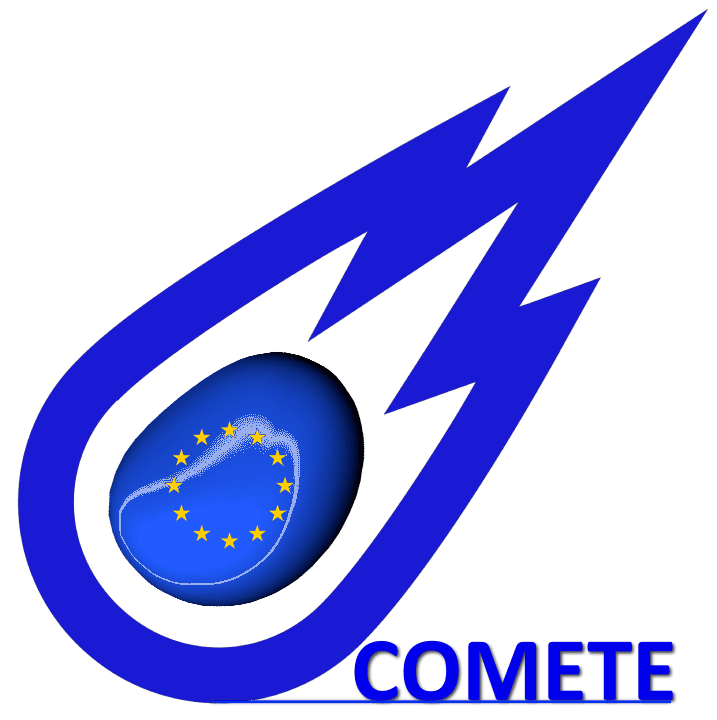
Duration: 2011-2014
Funded by: European Commission under the Environment Theme of the 7th Framework Programme for Research and Technological Development
EPES is a EU FP7 funded research project in manufacturing and sustainability engineering, aiming to produce set of tools for improving products and processes along their lifecycle. The project will develop a set of ICT tools, a methodology and a working handbook that will enable manufacturing companies to enter into a continuous process of upgrading their products along their life cycle within the frame of the virtual factory and Product Service System (PSS) concept through a configurable and adaptable set of services. The services will focus on improving the performance of products in operation taking into account different knowledge-based aspects as reliability, availability, maintainability, costs, productivity, quality, energy efficiency, etc.


Duration: 2010-2012
Funded by: POR FESR 2007-2013 - European Regional Development Fund (ERDF)
The main objective was to acquire a deep knowledge of the technology of cloud computing in order to exploit its promising potential in the areas in which ESTECO operates worldwide. Results were evaluated through pilot cases in both the computer aided industrial design and the numerical analysis of financial models. The project has also explored opportunities for accessing cloud computing from latest mobile devices.

Duration: 2010-2012
Funded by: Regional Law 47/78
The project followed a research and development program aimed at developing new methodologies for the development of innovative drugs (Drug Design) based on multi-objective optimization (MDO) and Design of Experiment (DoE) techniques.
Duration: 2010-2012
Funded by: Italian Department of Economic Development
Innovative products made by methodologies, processes and design tools based on the new needs of consumers in the world market.
Duration: 2008-2010
Funded by: European Commission under the ICT Theme of the 7th Framework Programme for Research and Technological Development
The main goal was the definition of an automatic framework to support multi-objective Design Space Exploration (DSE) of multi and many core SoC architectures. The framework enables the tuning of several architectural parameters to minimize multiple metrics (such as energy and latency) while meeting system-level constraints (such as throughput, bandwidth and QoS).

Duration: 2007-2009
Funded by: European Commission under 6th Framework Programme for Aeronautic and Aerospace
The objective was to introduce uncertainties within the Computational Fluid Dynamics (CFD) simulation process by applying non-deterministic methodologies in order to obtain an associated domain of variation of the predicted output quantities, instead of a single value. Tools for the evaluation and quantification of uncertainties in aerodynamic and thermal performance predictions were developed, supporting the aeronautical industry goals of enhanced design confidence, risk reduction and improved safety.

Duration: 2007-2008
Funded by: Regional Law 30/84
The main objective was to investigate the possibility for ESTECO to provide ready-to-use systems based on modeFRONTIER for analysis and optimization, bundled with open source applications tailored to the specific needs of the customer in the areas of CAD and CAE.
Duration: 16th June 2016 – 15th June 2017
Funded By: European Space Agency
Principal Inventor: University of Strathclyde (Prof. Massimiliano Vasile and PhD Annalisa Riccardi)
Potential Customer: SSTL Ltd
This proposal builds on the results of the Innovation Triangle Initiative (ITI) Stage A "Robust Design Optimisation of Space Missions" previously completed by Prof Vasile at the University of Strathclyde. Our aim is to further develop the concepts investigated in the previous ITI and increase the TRL of the relevant technologies.
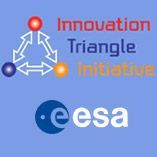
Duration: 2017 – 2021
This project has received funding from the biggest European Union Research and Innovation Programme Horizon 2020: HORIZON 2020 Website
UTOPIAE is a training and research network funded by the European Commission through the H2020 funding scheme. The main objectives of this network are to train, by research and by example, 15 Early Stage Researchers (ESRs) in the field of Uncertainty Quantification (UQ) and Optimisation and to impart them the skills to become leading independent researchers and entrepreneurs that will increase the EU innovation capacity.These skills will enable the ESRs to pursue careers in academia and industry. Through individual research projects, each ESR will investigate different facets of UQ and Optimization Under Uncertainty and develop cutting-edge methods and algorithms with particular focus on aerospace applications.
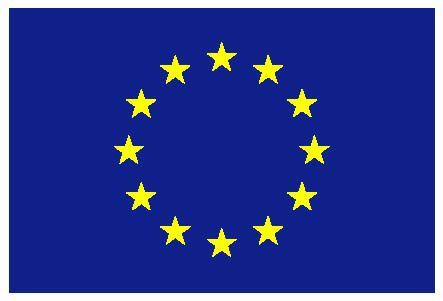
Duration: May 2016 – TBD
Funded by: Technology Foundation STW
DOUBLE FACE 2.0 is a project funded within the Research Through Design program of Technology Foundation STW. The main purpose of the project is to design and prototype a novel type of Trombe wall system that improves the thermal comfort by using new lightweight and translucent materials for latent heat storage. Next to the development of geometric modellers and performance simulations, evolutionary algorithms have been used to select design alternatives and investigate the effect of input parameters by performing Sensitivity and Multi-Variate Analysis in modeFRONTIER.
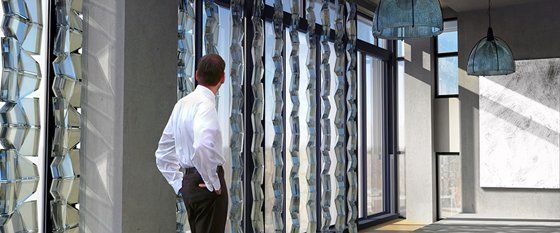
Duration: 2013 – 2015
This project has received funding from the Eurostars Programme, powered by EUREKA and the European Community, under agreement no E!6853: EUREKA Programme Website
The project will develop an innovative tool for designing compact heat exchangers. The tool, based on the calibrated blend of computers simulations and design experience and validated against experimental data, will target design time optimization, reduction of energy consumption, and maximization of performance.
Duration: 2005-2007
Funded by: Regional Law 30/84
The main objective was to perform research oriented to the development of series of software modules for the simulation and optimization of an internal combustion engine and its components.
Duration: 2005-2009
Funded by: European Commission under 6th Framework Programme for the AEROSPACE Program
The main objective was to establish the technical feasibility of an environmentally compliant supersonic small size transport aircraft (S4TA), through a Multi-Disciplinary Optimization (MDO) approach and focused technological improvements.
Duration: 2004-2004
Funded by: Regional Law 30/84
The main objective was to provide a link between CAD software widely used by boats designers with the execution of simulation components in order to enhance the performance of the designed sailing boats.
